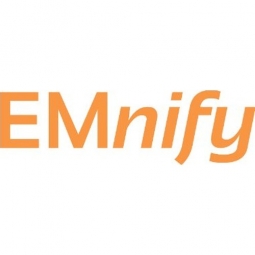Customer Company Size
SME
Region
- Europe
Country
- Germany
- Austria
Product
- Aqueduct
- EMnify IoT SIM
- EMnify Web Portal
- EMnify OpenVPN
Tech Stack
- Cellular GSM technology
- OCPP 1.6 standard
- RFID-enabled charging pass
Implementation Scale
- Enterprise-wide Deployment
Impact Metrics
- Cost Savings
- Productivity Improvements
Technology Category
- Networks & Connectivity - Cellular
- Networks & Connectivity - RFID
Applicable Industries
- Automotive
- Electronics
Applicable Functions
- Facility Management
- Logistics & Transportation
Use Cases
- Vehicle Telematics
- Remote Asset Management
- Fleet Management
Services
- System Integration
- Cloud Planning, Design & Implementation Services
About The Customer
ChargeX is a Munich-based e-mobility startup founded in 2018. The company aims to make private and semi-public EV charging more accessible, user-friendly, and manageable. ChargeX's product, Aqueduct, is designed to meet the needs of business operators. It functions like a power strip that allows for sequential charging of multiple vehicles with a single power line. Via Open Charge Point Protocol (OCPP), a central backend system collects all user and operational data to enable remote monitoring, billing management, and other digital services. Just one year since its market entry, ChargeX has successfully deployed Aqueduct at various customer locations across Germany and Austria – including Volkswagen, Renault, and Opel premises.
The Challenge
Electric vehicles are foreseen to be the future of urban mobility, especially as the new EU emission target comes into force in 2021, which limits the emission for average passenger cars to 95g CO2/km. However, the lack of charging infrastructure has been a major hurdle in the mass-market adoption of electric vehicles. Governmental plans to roll out fast public charging stations aim to alleviate the current shortage. But with 80% of all charging happening over a longer period – at home or work, equivalent private charging infrastructure is critical in the transition to electromobility. Businesses often do not see the appeal of implementing on-premises EV charging stations, due to the significant costs and complexity involved.
The Solution
ChargeX developed Aqueduct - a modular, affordable solution for private and semi-public charge point operators, typically enterprises, property owners, and parking houses. Built with a master-slave design and intelligent load management capability, the Aqueduct system is easy to install and maintain, allowing customers to quickly turn available parking lots into EV charging spaces. The number of charging modules can further be flexibly scaled to meet growing needs. Wireless communication is an integral part of ChargeX’s solution to enable remote system monitoring and allow its customers to offer EV charging as a service. Compatible with the latest OCPP 1.6 standard, Aqueduct modules collect user ID via an RFID-enabled charging pass for authentication, then communicate all important data points to the ChargeX backend system for management and operations via a wireless network.
Operational Impact
Quantitative Benefit

Case Study missing?
Start adding your own!
Register with your work email and create a new case study profile for your business.
Related Case Studies.

Case Study
Remote Temperature Monitoring of Perishable Goods Saves Money
RMONI was facing temperature monitoring challenges in a cold chain business. A cold chain must be established and maintained to ensure goods have been properly refrigerated during every step of the process, making temperature monitoring a critical business function. Manual registration practice can be very costly, labor intensive and prone to mistakes.

Case Study
Integral Plant Maintenance
Mercedes-Benz and his partner GAZ chose Siemens to be its maintenance partner at a new engine plant in Yaroslavl, Russia. The new plant offers a capacity to manufacture diesel engines for the Russian market, for locally produced Sprinter Classic. In addition to engines for the local market, the Yaroslavl plant will also produce spare parts. Mercedes-Benz Russia and his partner needed a service partner in order to ensure the operation of these lines in a maintenance partnership arrangement. The challenges included coordinating the entire maintenance management operation, in particular inspections, corrective and predictive maintenance activities, and the optimizing spare parts management. Siemens developed a customized maintenance solution that includes all electronic and mechanical maintenance activities (Integral Plant Maintenance).







